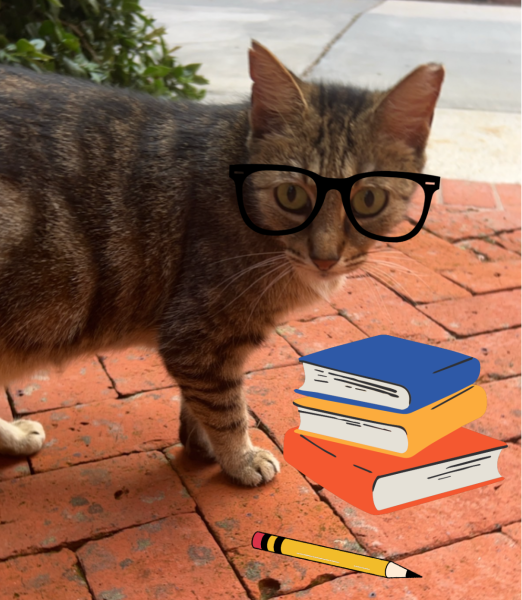This article is entirely satire. All information and interviews below are fictional and for entertainment purposes only.

A new study has found that campus cats score higher than Spring Scholars at Tulane University when evaluated across a range of metrics.
Tulane’s Spring Scholars program admits students to pursue “enriching activities” abroad and matriculate to the New Orleans campus during their second semester. Spring scholars are typically not considered for merit scholarships and their standardized test scores and grade point averages are not factored into their class profile.
It has been long known that the Spring Scholars program allows Tulane to admit below-average students who are willing to pay full freight. But exactly how below-average are these incoming first-years?
Tulane’s animal and human relations research lab created a test to assess the intelligence of Spring Scholars compared to Tulane’s campus cats.
The test included three sections: colors, shapes and spelling.
In the colors section, test participants matched colors with their names. The shapes section used the same approach as participants matched shapes to their names. During the spelling section, the test administrators stated a list of English words of which the participant had to write the words on a sheet of paper.
After administering the test to Tulane’s campus cats and Spring Scholars, the results concluded that campus cats are more intelligent than Spring Scholars.
The campus cats beat the Spring Scholars by a wide margin on both the colors and shapes sections. For the colors section, the campus cats scored 91%, while Spring Scholars scored 69%. The cats and Spring Scholars scored 88% and 59% on the shapes section, respectively. The Spring Scholars had a strong showing in the spelling section, but were still beaten by the cats by 3%. It should be noted that the cats had never held a writing utensil to spell words prior to this examination.
Jeffery, one of Tulane’s most notable campus cats, scored the highest among all test-takers, both human and feline.
“The test was a lot easier than I thought even though I learned English from students cooing at me in a baby voice,” Jeffery said.
Many Spring Scholars objected to the findings, stating that cats had more experience on campus and thus were better-equipped to take the test.


